Croatia Reports 54 COVID-19 Deaths, 361 New Infections
ZAGREB, 4 January, 2021 - Croatia has registered 361 new coronavirus cases and 54 infection-related deaths in the last 24 hours, the national coronavirus response team said on Monday.
The number of active cases stands at 5,899 and 2,453 people are receiving hospital treatment, including 196 on ventilators.
With the 54 latest fatalities, the death toll has climbed to 4,126.
Since February 25, when the first case of infection was confirmed in the country, 213,319 people have been infected with the novel virus. A total of 203,294 have recovered, of whom 852 in the last 24 hours. Currently 16,865 people are in self-isolation.
A total of 1,035,076 people have been tested for coronavirus, including 2,985 in the last 24 hours.
Croatia Logs 696 New Coronavirus Cases, 56 Deaths, 1,142 Recoveries
ZAGREB, 3 January, 2021 - In the last 24 hours, of 5,611 tests performed for coronavirus, 696 tests, that is 12.4%, have returned positive, and 56 COVID patients have died, Croatia's COVID-19 crisis management team stated on Sunday.
The death toll stands now at 4,072.
There are currently 6,444 active cases, including 2,453 hospitalised patients, of whom 211 are placed on ventilators.
A total of 18,299 people are self-isolating.
Since the start of the epidemic in late February, 212,958 people have been infected with the novel virus and 202,422 have recovered, including 1,142 in the last 24 hours.
As many as 1,032,091 tests have been done.
Croatia's Coronavirus Update: 255 New Cases, 55 Deaths, 1,480 Recoveries
ZAGREB, 2 January, 2021 - In the last 24 hour, of 1,740 tests performed for coronavirus, 255, that is 14.6%, have returned positive, and 55 COVID patients have died, Croatia's COVID-19 crisis management team stated on Saturday.
The death toll stands now at 4,016.
There are currently 6,946 active cases, including 2,437 hospitalised patients, of whom 219 are placed on respirators.
A total of 20,585 people are self-isolating.
Since the start of the epidemic in late February, 212,262 people have been infected with the novel virus, and 201,300 have recovered, including 1,480 in the last 24 hours.
As many as 1.02 million test have been conducted.
Croatia Logs 1,850 New Cases of Coronavirus, 65 Fatalities
ZAGREB, Dec 30, 2020 - Croatia has registered 1,850 new cases of coronavirus in the past 24 hours and 65 people have died as a consequence, the national COVID-19 crisis management team reported on Wednesday.
There are currently 8,301 active cases and 2,608 are in hospital treatment and of that number 240 patients are on ventilators.
Today's numbers were registered after 6,322 people were tested in the past 24 hours. Since the outbreak of the epidemic a total of 1,010,668 tests have been conducted.
A total of 208,446 cases of the infection have been registered since the start of the epidemic, and of them 3,860 have died.
A total of 196,285 patients have recovered from COVID-19 so far, with 1,157 recovering in the past 24 hours while 23,094 people are still in self-isolation.
What Kind of Life Awaits Croatian Anti-Vaxxers Who Refuse Vaccination?
December 29, 2020 – The arrival of COVID-19 vaccines in Croatia has been met with much relief by many people. But, not everyone is happy. Conspiracy theorists - those who favour disreputable sources and 'whispers on the wind' to real science - are reticent, some even angry. So, what kind of life awaits Croatian anti-vaxxers who refuse to take the vaccine?
The people who inhabit the lands now known as Croatia have a long history of being pushed around. For this, they cannot be blamed. Greatly outnumbered by the occupying armies of some of the most powerful empires of all time - the Romans, Venetians, Austro-Hungarians and Ottomans - their rebellions against such overlords have been relatively small in number. Their default setting has been to visit the kafana at the end of the day and moan, grumble, gossip - perhaps even plot - against those who make their lives disagreeable.
Croatia was finally freed of its last imposing masters over two decades ago. But, true to form, the grumbling in the kafanas has continued. Except, now that the kafanas are all closed in response to Coronavirus, the moaning has moved almost exclusively to the internet. And, it has reached a shrieking pitch.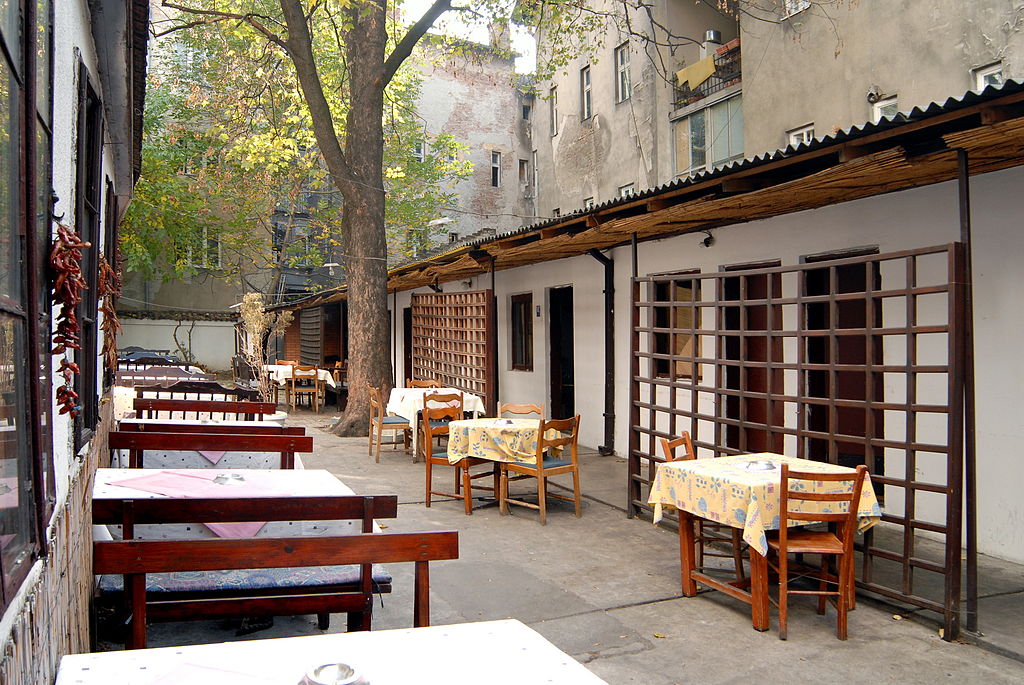
The arrival of COVID-19 vaccines in Croatia has been met with much relief by many Croatians. The news of the first vaccinated citizen, followed by the first vaccinated healthcare workers, was also well received. You can tell this from the overwhelmingly large amount of 'likes' such news generates when posted to social media. These warm welcomers of good news in Croatia could be best described as the silent majority. And, in the same way most Croatians lay subdued for lifetimes under bullying empires, this silent, sensible majority is drowned out by the deafening vitriol of the unhinged within the comments sections underneath.
These arch-moaners appear in the comments on most issues, railing against the increasingly modern ways of the world. On the issue of Coronavirus and the incoming vaccines, it is the Croatian anti-vaxxers who are angrily dominating the discourse.
It appears near pointless to debate with them. They are not ones for science, facts nor reasonable debate. Not for them are the reports of scientific journals, the BBC, The New York Times, The Guardian, Al Jazeera, or The Washington Post. Instead, they cite the most spurious of sources – a website nobody else has heard of, a document written by a friendless doctor from the Texas farming community who has a curiously photoshopped profile picture, a Youtube video made for the same price as a hamburger and narrated by a 17-year-old from the outside toilet. There's no point telling them that the vaccines coming onto the market were actually designed back on January 13, just two days after the Coronavirus genetic sequence had been made public and that it has taken until now to produce them, due to stringent testing on their safety. No. Because for Croatian anti-vaxxers, whispers on the wind, the horoscopes, crystal ball of the fortune-teller and the inescapable stare of Braco are just as reliable - if they're telling you what you want to believe. For whichever lunatic theory you want to adopt, you can look online and you'll be sure to find some crackpot to back it up. The internet is the great leveller for Croatian anti-vaxxers as well as everywhere else - a place where deposed Nigerian royalty who want to put money in your bank account have just as much credence as an 80-year-old media title with a blemishless reputation.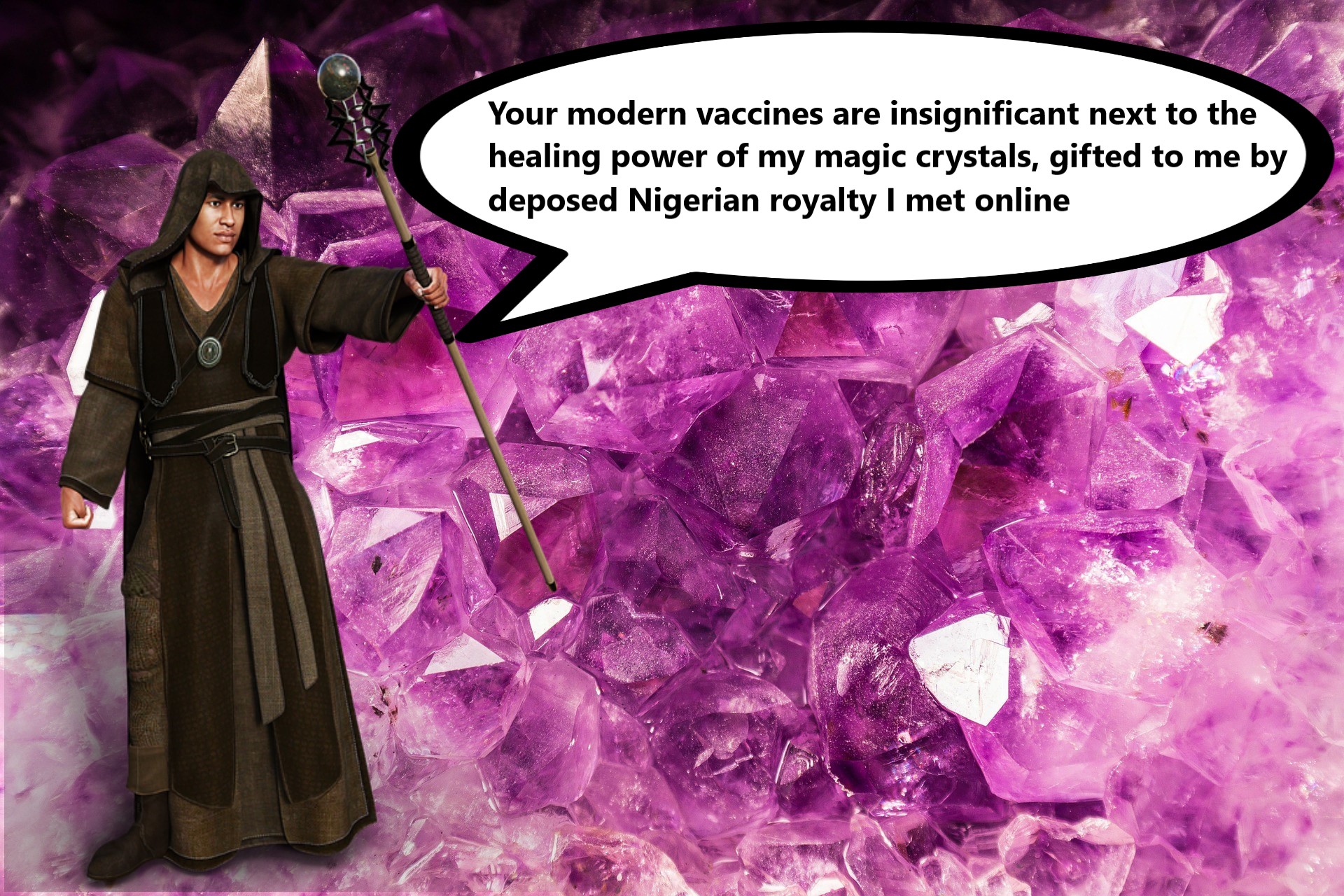
Of course, while life is too short to even debate with anti-vaxxers in Croatia or anywhere else, that's not to say they are undeserving of sympathy. In our recent interview with a doctor working on the Coronavirus frontline in a Croatian hospital, they generously raised an interesting defence of the tin-foil hat brigade - “It's not always the content of the conspiracy theory that appeals to these people as much as it is their inability to accept facts – the truth – because they have little faith in the authorities that are telling them.”
Finding fault in authorities is far from unique to Croatia. Yes, there is a certain amount of kafana moaning and grumbling all over the world, and often for good reason. Politicians are more than aware of this. And, in an era of widespread voter apathy and low voter turnout, where yet another silent majority has the potential so easily to change the names of those who govern, this is exactly why politicians will abstain from making the Coronavirus vaccines mandatory. With things as they currently stand, it is near inconceivable that Coronavirus vaccines will be made compulsory in Croatia or in any other western democracy. Good news for Croatian anti-vaxxers? Well, not quite, because it is highly likely that the private sector will be among the greatest of persuaders for vaccination. It is not unthinkable that we are about to enter a wholly new two-tiered society – the vaccinated and the unvaccinated. And signs of what that life might look like for Croatian anti-vaxxers are not good. They are not good at all.
“Vaccination could become one of the measures that would make it possible to come to events,” Stefan Breitenmoser, general manager of the Professional Association of Swiss Organizers of Concerts, Events and Festivals, told Sonntags Blick in the past week. In Switzerland, vaccination began on Wednesday and it is free. It is not only the entertainment events industry that is considering the measure - the Swiss Football League similarly said it is giving it serious consideration. Professional sports and the events industry have lost billions during the pandemic. The 2021 Olympics hangs on a knife-edge in regards to accepting audiences into its stadiums – it has already been delayed by a year. It is highly conceivable that access to all large events in future will be dependent on proof of vaccination. The National Stadium in Japan was due to host some of the key events of the 2020 Summer Olympics. The whole event has been delayed until summer 2021, in response to the pandemic © Arne Müseler
The National Stadium in Japan was due to host some of the key events of the 2020 Summer Olympics. The whole event has been delayed until summer 2021, in response to the pandemic © Arne Müseler
In an interview on N1 television in Croatia over recent days, epidemiologist Branko Kolarić - a member of the Scientific Council of the Government of the Republic of Croatia - echoed similar thinking. He stated that a list of the vaccinated will be carefully maintained, most likely through some kind of e-documents, and although vaccination will not be mandatory, vaccination will bring some benefits - such as air travel, group gatherings and attendance of concerts and festivals. You are surely not going to see police or soldiers checking your vaccination status at the entry to a dance music festival in Dalmatia. But, it is highly likely that event organisers will insist on proof of vaccination before granting entry. Even if they don't wish to, it is more than conceivable that they would not be granted the necessary licenses nor insurance without assuming such a position.
Another industry that has lost billions in the pandemic is the travel and tourism sector. Little surprise then to have found budget airline Ryanair launching a new campaign of 'Jab and go' over the last few days. The suggestion is crystal clear – get vaccinated, you can come on our planes, we'll allow you to travel. Ryanair will certainly not be the last airline to assume responsibility for vetting passengers' vaccination status. Croatian anti-vaxxers had better be really happy to be here, because international borders may well be permanently closed for them while they remain unvaccinated.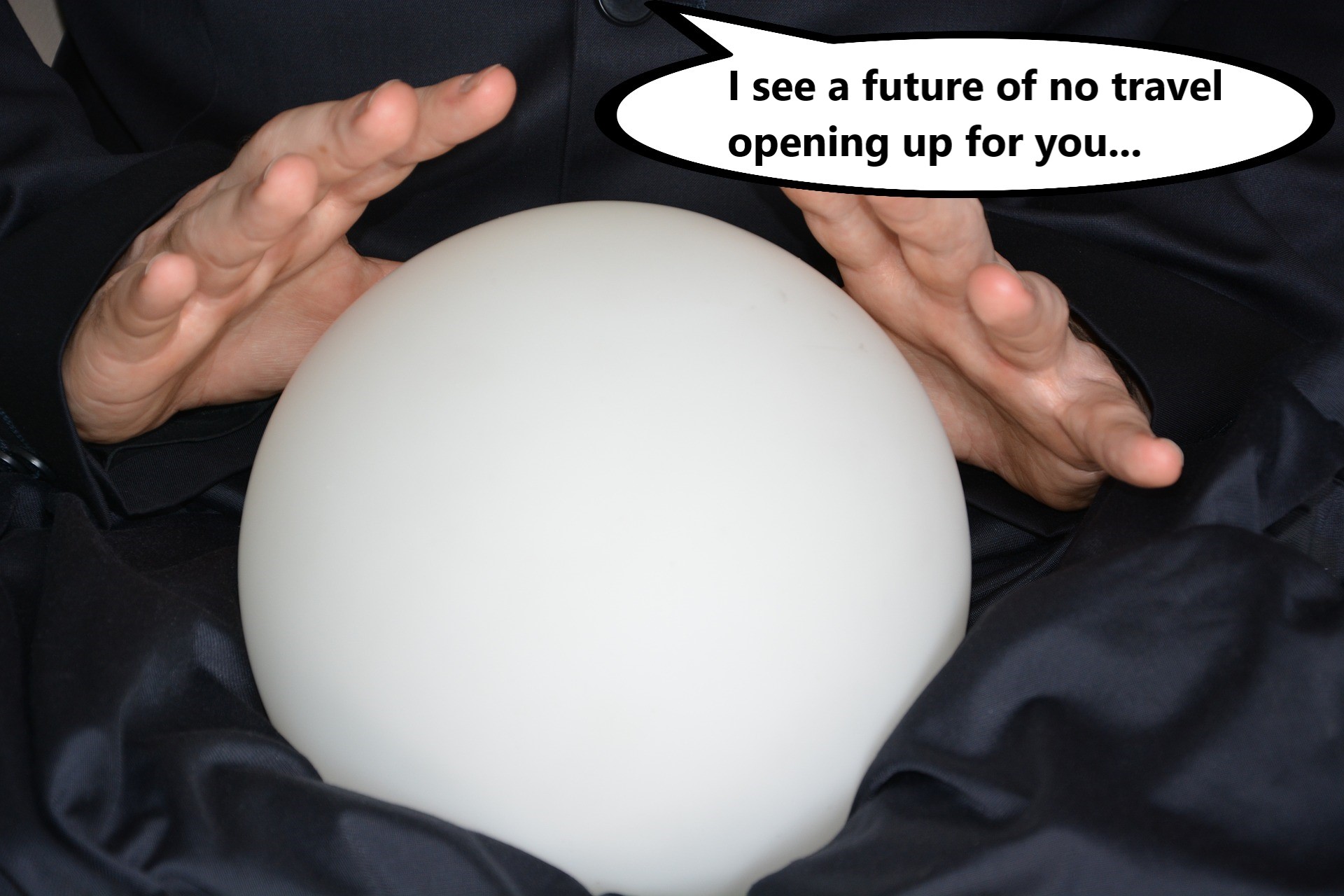
So, a life with no spectating at big sports events, no more large concerts or music festivals and no more international travel is what seems to be just around the corner for Croatian anti-vaxxers. Sounds harsh, unpleasant. But what if it extends to libraries, schools or even hospitals? We don't yet know anything concrete about the lower tier of existence Croatian anti-vaxxers may choose to dwell in. But, it's not where I want to live. Perhaps they'll even be forced to drink exclusively in their own anti-vaxxer kafanas? For sure they'll be easy to identify – they'll be the ones from which the loudest moans are coming.
The views expressed in this article are solely those of the author and are not necessarily shared by Total Croatia News
How Has Crisis Affected Croatian Employment in Different Sectors?
December the 29th, 2020 - The coronavirus crisis has affected just about everything, causing a tremendous economic crisis, but just how has Croatian employment in various different sectors been affected by its iron grip?
As Marina Klepo/Novac writes, the impact of the ongoing crisis on young people is very serious, despite measures to preserve jobs remaining in place, the unemployment rate could still increase in the coming months, according to the European Commission (EC) in its latest quarterly report on Employment and Social Trends.
The coronavirus crisis has led to an “unprecedented loss of income from work”, and the effect has been particularly felt by those already disadvantaged on the labour market, such as young people, temporary workers and, in some countries, women.
Increased inequalities
The decline in income ranged from more than 10 percent in Croatia to less than two percent in Latvia and Hungary. The cause of these large differences between the countries of the European Union is the different structure of their economies, meaning that the largest decline in income was experienced by countries with a larger share in the tourism-related sector, either due to job loss, working less hours or full on unemployment.
As such, employees in food preparation and accommodation lost 20 percent of their income, in the field of culture and entertainment, 14 percent, in construction nine percent, in trade about six percent and about five percent in the transport and storage sector. The ongoing pandemic has only exacerbated previous inequalities even more and hit more vulnerable groups of employees, meaning that in some countries, the gap between lower and better paid workers has only increased.
Government measures across various member states have alleviated the problem a little bit, and the European Commission's analysis shows that some countries, such as Croatia and France, have been more effective in protecting low-paid workers from losing their income than those with middle and higher incomes. When it comes to the state of Croatian employment, however, things could still go even further south.
Nicolas Schmit, the EC's Commissioner for Employment and Social Rights, said the Commission was using all available means to provide support to member states, especially through the SURE instrument, which supports national part-time programmes. In addition, the extension of the Youth Guarantee programme will support young people "in skills development and work experience, especially in areas relevant to the green and digital transition".
The Youth Guarantee is a programme introduced back in 2014 with the aim that all those under 25 receive a quality job offer, the possibility of further education, apprenticeships and internships. On the 1st of July this year, the Commission proposed strengthening the programme to prevent rising unemployment, and the Council unanimously adopted the changes on the 30th of October. In addition to now placing greater emphasis on training in areas of the green and digital transition, the new measures include more support for disadvantaged youth, and the age limit has been raised to 29 years of age.
For the latest travel info, bookmark our main travel info article, which is updated daily.
Read the Croatian Travel Update in your language - now available in 24 languages
Croatia Logs 316 New Coronavirus Cases, 68 COVID Deaths
ZAGREB, Dec 28, 2020 - In the past 24 hours 316 new coronavirus cases have been registered in Croatia and 68 COVID-19 patients have died, the national COVID-19 response team said on Monday.
The number of active cases is 8,036, including 2,720 hospitalised patients, of whom 256 are on ventilators.
Since February 25, when the new virus was first reported in Croatia, there have been 205,246 cases of infection, 3,739 COVID-19 deaths and 193,471 recoveries, including 2,245 in the past 24 hours.
Currently 30,780 persons are self-isolating. To date 996,935 persons have been tested for coronavirus, including 2,642 in the past 24 hours.
Croatian Healthcare Workers: Christmas's Forgotten Heroes?
December 28, 2020 – Amidst the difficulties of a second lockdown, a socially distanced Christmas and yet more earthquakes, have we forgotten about Croatian healthcare workers? TCN decided to interview a doctor working on the front line of the fight against COVID
During the first lockdown, it was all about the balconies. Saxophonists, DJs, opera singers – we were entertained on social media by a string of balcony-based stunts that somehow showed resilience, community spirit, humour. Zagreb was no exception. A trend of clapping on balconies in appreciation of healthcare workers passed from country to country and was picked up in Zagreb. After the applause finished, people went back inside. Nothing much had changed. It was a nice enough gesture.
Since the start of summer, no such applause has been heard. Perhaps the release from lockdown gave the signal that the lives of Croatian healthcare workers had also become much easier? That certainly wasn't the case. Though the number of people infected with COVID has grown significantly over recent weeks, Croatian healthcare workers have been treating people sick with COVID since springtime.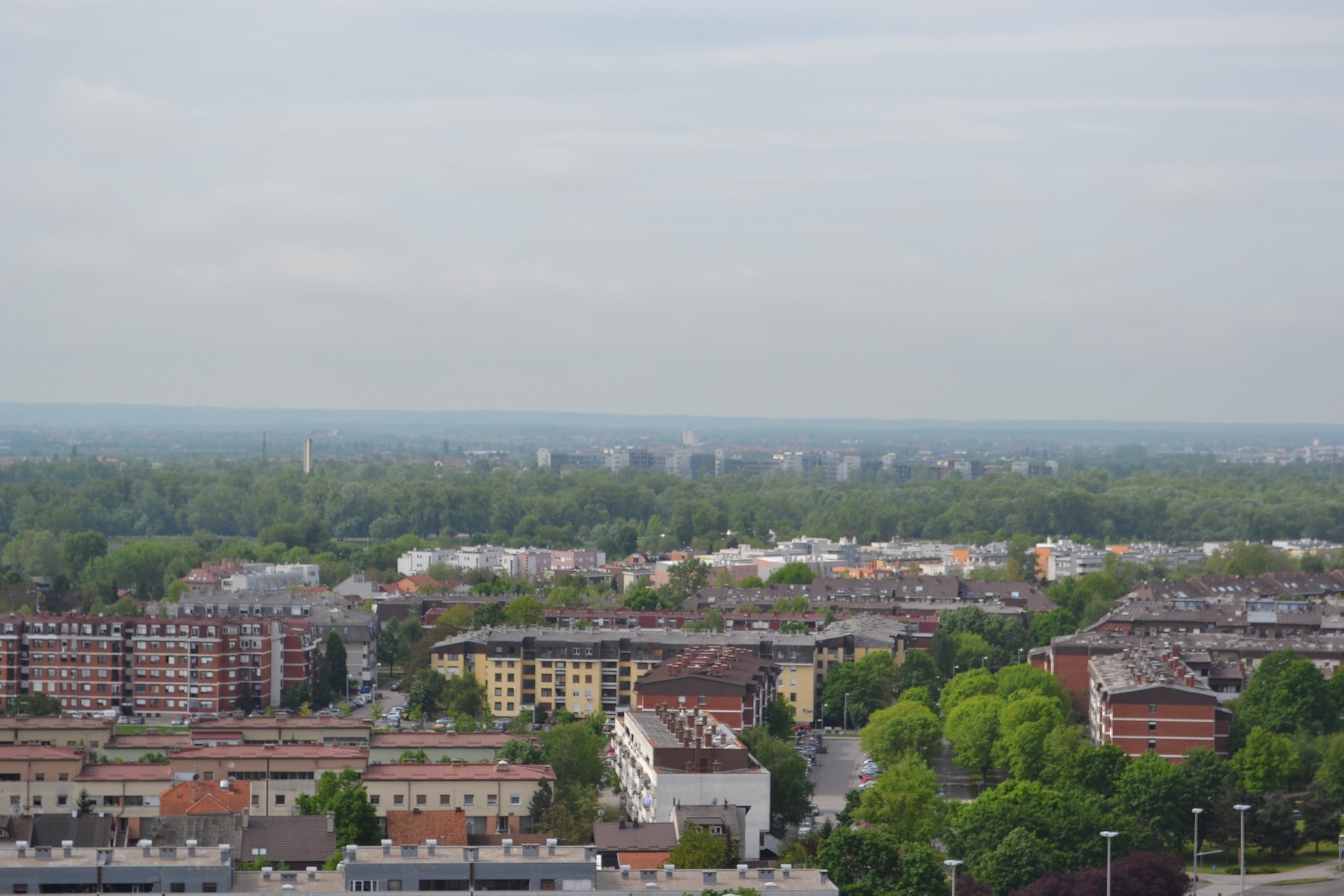
Croatian healthcare workers are currently busier with COVID patients than at any time before. And yet, there are no more trips out onto the balconies to show our appreciation for them. Perhaps it's now too cold outside? Perhaps some aren't aware how busy Croatian healthcare workers currently are with COVID patients? Are we perhaps guilty of taking Croatian healthcare workers for granted? Or, maybe we have simply put Croatian healthcare workers to the back of our minds as we struggle with our own challenges?
Throughout this year, TCN has been pleased to report many instances of generosity and innovation directed towards the fight against COVID. Certainly, not everyone in the country is guilty of forgetting about the Croatian healthcare workers who are on the front line fighting this disease. But, how much impact do these instances have on the general lives of Croatian healthcare workers? What is it like to no longer hear the nightly appreciation from our balconies? And, just what is life like as one of the many Croatian healthcare workers battling COVID in the year of the pandemic? TCN decided to interview one to find out.
The doctor we spoke with is a resident physician, working at a smaller community hospital in the continental part of Croatia. They agreed to speak with us on the condition that they do so anonymously.
Looking back at the first lockdown, we didn't know so much about COVID back then. We didn't know exactly how it was spread, the different manifestations of the disease, what course the disease took, nor what the recovery could be like. I think the government did a really good job of responding to the threat as they saw it. We had a small spike in cases, but that is minuscule to what we have now.
I think people generally did what they were told because they thought it would be temporary and they could see the sense in starving the disease out.
At the hospital, we were at first caught a little off guard with the amount of PPE we had and some other resources that we needed. For ICU and ventilators, we were well equipped.
Some of the residents were given some paid leave. It was important to put human resources into tiers. Croatian healthcare workers were certainly more predisposed to catching the disease, simply because they were around it every day.
After such great early successes, I was surprised that everything was relaxed later on to allow the tourist season to take place how it did, and for events like the Vukovar commemoration. It felt like it was a calculated risk. The lockdown we are now in is perhaps too little, too late. The disease is out there now, wild. The numbers of infected people are significantly higher.
The difficulty with this disease is that people can be infected and have very few or no symptoms at all. They might not know they are spreading the virus. You might not know you're sitting next to someone who has it.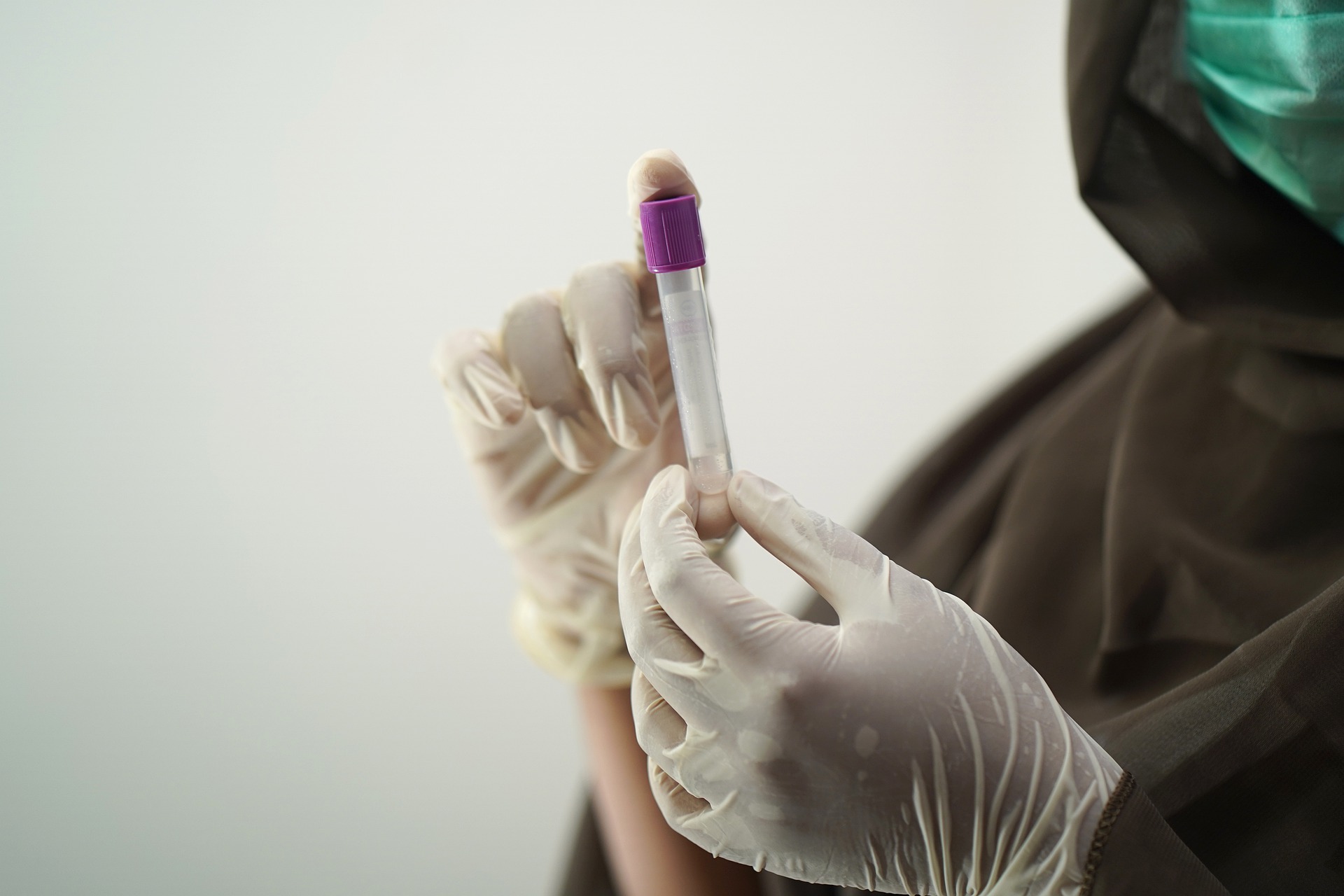
Even though we're not at the centre of care for a major population area or city, we saw cases of the disease almost immediately. Our community hospital services an area containing around 150, 000 people. The first cases in April came from nursing homes – elderly, vulnerable people, many with pre-existing conditions. We were well equipped to handle it. Now, we are stretched on a daily basis. We fill the beds with sick people as soon as we empty them.
We wear masks and PPE all day, all the time. All Croatian healthcare workers in hospitals currently do this. Every patient who comes in, regardless of their symptoms, we treat them as though they are carrying the disease.
A lot of residents like me, who are working towards getting their specialty, go to do some periods of work in larger hospitals in the bigger cities. Now, many of those residents have been called back to their community hospitals – we are short on human resources.
The hospital has had to restructure itself significantly. Lots of doctors have been asked to provide cover in the emergency department. Over half of that area is now fully dedicated to COVID.
What do COVID patients look like in regards to their symptoms? It depends on their age and risk group, but you see people who look like they have flu or bacterial pneumonia, you see people who are in acute respiratory distress. Sometimes they have neurological changes, some of them look like they have had a stroke. Some people who have been infected and have supposedly got over the worst of the symptoms, come back in after a month or two with blood clotting problems – blood clots in the legs, which have a tendency to travel up to the lungs and cause a pulmonary embolism. That's a pretty big medical emergency. Some who have pre-existing heart conditions come in with a heart attack triggered by them catching COVID – it's more complicated trying to revive someone when you know they have COVID. The presentation of the disease is so variable.
It's not only older people. I've seen young people be admitted with serious reactions to COVID - young, healthy people who have no pre-existing conditions. I've seen young people come in with mild symptoms, they are sent home with antibiotics and steroids. That is the standard treatment – antibiotics to prevent a bacterial super-infection and steroids to prevent an acute reaction by the body's immune system to COVID. - that's what can cause big problems later on, in the course of the illness. But, sometimes that's not enough. I had a young patient just last week - super healthy, worked out regularly, no pre-existing conditions – and his lungs just looked awful. He had to go to the ICU immediately (sadly, this patient later died). That's like no disease I've ever seen before. Really, COVID is a completely new kind of animal.
The new strain of COVID? There is evidence that it can be spread more easily, and that it can affect more younger people, but there is no evidence that it is any more severe. The vaccines will work against it.
We're short on ventilators now. Really, we need two free ventilators at any time, in case there is an emergency admission. We are not currently in the position where we always have two free ventilators – sometimes they are all in use. That's a worry. I worked one shift where the anaesthesiologist said “We just don't have any more space for them – we will just have to put them in the hallway”. I've never seen that before.
I've heard of Croatian healthcare workers, colleagues in other hospitals getting sick with COVID and the hospital asks them to prove they got sick at work. It's pretty clear that's the most likely place they would have got sick because they're working with COVID patients. They were forced to be off work, but only on a lower level of sick pay. If you get ill because of being at work, you get full pay. But, they couldn't prove it, so they didn't get that.
I've been lucky – I haven't caught COVID yet. Well, as far as I know. My pay hasn't gone down, it's gone up – but only because I'm working so many double shifts. I volunteer to provide cover when other members of staff get sick. The specialists – the consultant doctors – they have it worse than us resident doctors. They are more responsible, so they are expected to work more hours. Nobody is pressured or threatened into picking up extra shifts, it's just something that almost all of us just do.
I've read some nice stories about fundraising efforts and donations to Croatian healthcare workers and hospitals in different parts of the country. Everything is appreciated. But, I personally haven't seen any effect of that on our day to day lives at work. Not at our hospital. Maybe there were PPE donations or cash donations, but it hasn't impacted the daily lives of me and the Croatian healthcare workers who are my colleagues. I think I heard that a local garage was giving free cups of coffee if you show your medical ID. Every little is appreciated.
For me and the Croatian healthcare workers who are my colleagues, instead of any kind of personal discounts or donations to staff, we would much prefer if people just took this disease more seriously. Things look very different when you work in a hospital compared to someone outside who maybe doesn't know anyone who got sick.
I came off a particularly difficult double shift a couple of months ago – it was just non-stop COVID admissions, some severe cases. As I was walking home, I walked past a bar that's near to the hospital. They had signs on the walls telling people to keep their distance. But, the bar was absolutely packed – full of young people. It just felt so disappointing. I couldn't help but think of the older relatives they would come in contact with, some who might get really sick.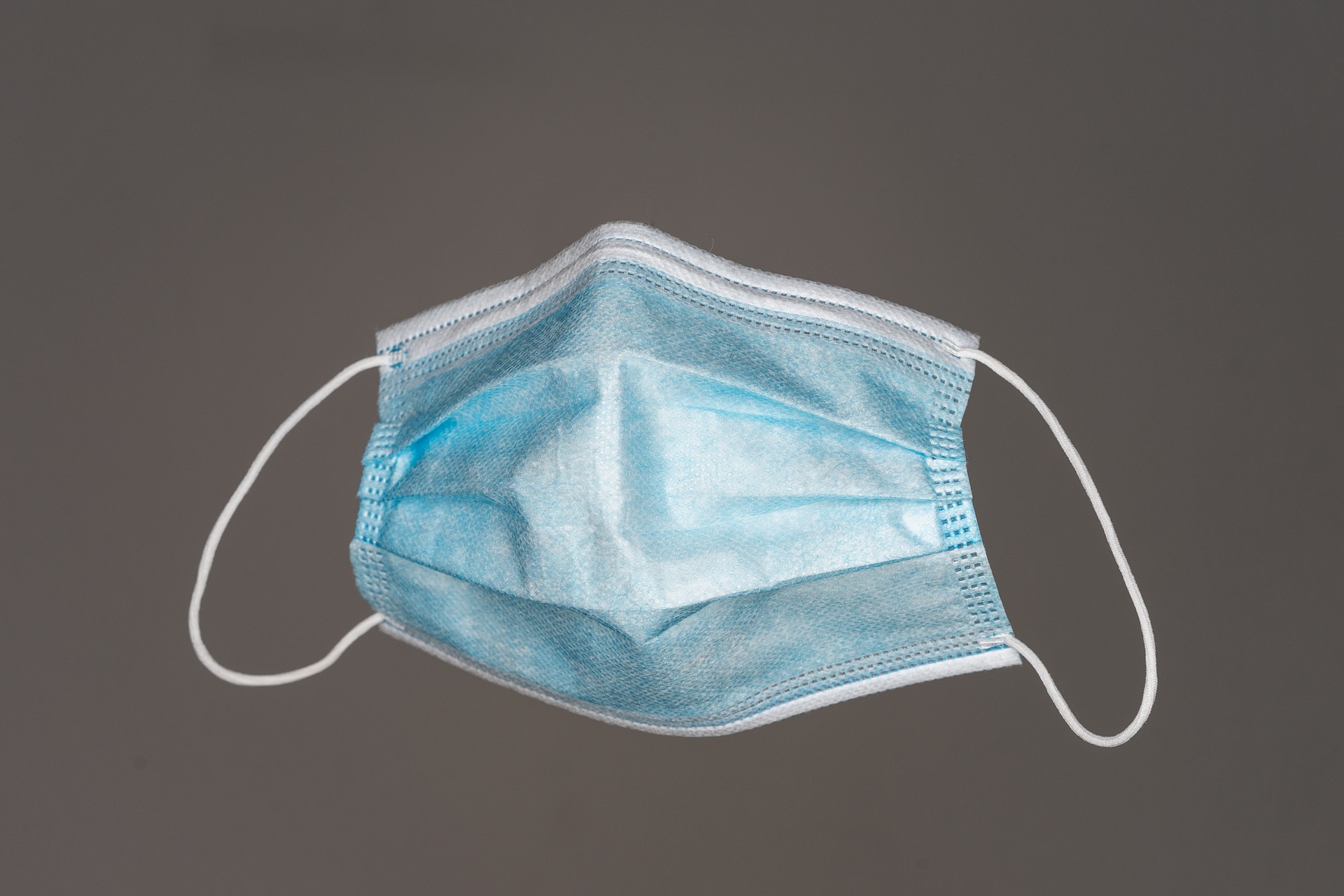
Instead of people clapping on balconies, I think Croatian healthcare workers would just prefer more general vigilance and personal responsibility – wear your mask, wash your hands regularly, no more parties in the basement. Clapping on balconies is a nice gesture, but ultimately it's an empty one.
How does it feel to know that there are some people out there, in every country, all around the world, who believe COVID is a hoax, or a plot, or not so serious, or that the vaccine is dangerous or something other than what it is?
Well, it's not always the content of the conspiracy theory that appeals to these people as much as it is their inability to accept facts – the truth – because they have little faith in the authorities that are telling them this. Here in Croatia, I think that distrust is quite high – a lot of people are disillusioned with the state and politics, because of corruption. Sometimes over 50% of the population choose not to vote. The dissemination of misinformation over social media doesn't help - if that's where people get their news from. If you look at that example from your own country, where strict measures about movement were put in place by your government, and immediately afterward, the Chief Advisor to the Prime Minister, was caught breaking them to travel across the country with his family to a second home in the countryside, going out on day trips. And he was defended by his colleagues after he was found out! When people see those kinds of things happening, the distrust between people and the authorities just grows.
All of the images in this article are used as illustrations only. None of the places or people depicted are in Croatia or Croatian, except for the first image, a panorama of Zagreb
Croatia Reports 618 New Coronavirus Infections, 58 Deaths
ZAGREB, Dec 27, 2020 - In the past 24 hours 618 coronavirus infections have been registered in Croatia, putting the total number of active cases at 10,033, the national civil protection authority said on Sunday.
A total of 2,691 patients are hospitalised, including 258 who are on ventilators.
In the past 24 hours, 3,628 people have been tested for the novel virus.
There have been 58 coronavirus-related fatalities.
Currently 35,484 people are in self-isolation.
Since the start of the epidemic on February 25, Croatia has registered 204,930 coronavirus cases, 3,671 deaths and 191,226 recoveries, including 2,171 in the past 24 hours.
To date 994,293 people have been tested for the novel virus.
Croatia Registers 2,763 New Coronavirus Cases, 66 Deaths
ZAGREB, Dec 23, 2020 - Croatia has registered 2,763 new cases of coronavirus infection after more than 10,000 tests, as well as 66 related deaths in the last 24 hours, the national COVID-19 crisis management team reported on Wednesday morning.
The number of active cases currently stands at 15,957, and there are 2,843 COVID patients in hospitals, 291 of whom are on ventilators.
Since the first case of the infection was confirmed in Croatia, 200,086 people have contracted the disease, of whom 3,394 have died and 180,735 have recovered, including 1,855 in the last 24 hours.
There are currently 47,482 people in self-isolation.
To date, 974,507 people have been tested for the novel virus, 10,194 of them over the past 24 hours.


